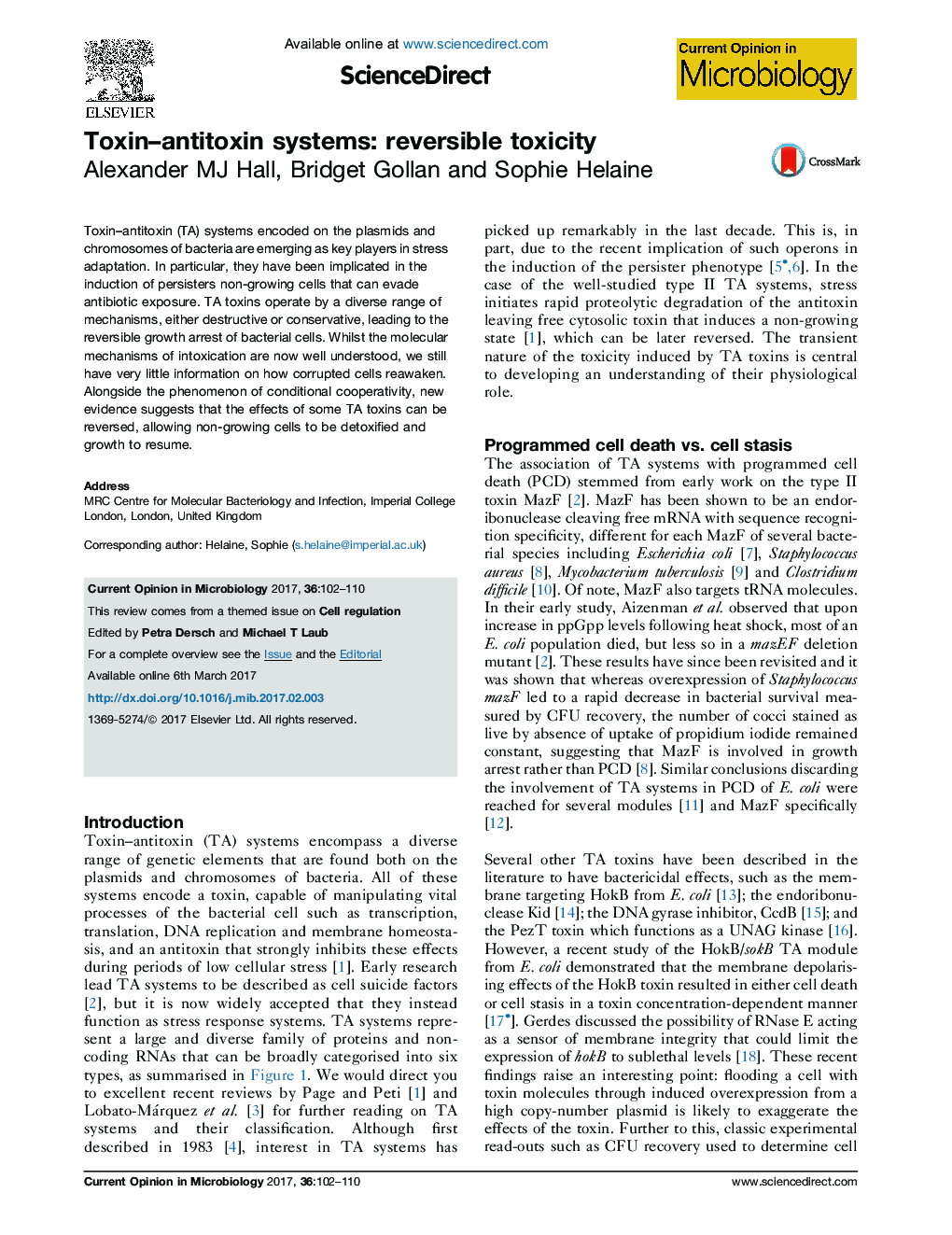| Article ID | Journal | Published Year | Pages | File Type |
|---|---|---|---|---|
| 5671754 | Current Opinion in Microbiology | 2017 | 9 Pages |
â¢Toxin-antitoxin systems induce a reversible growth arrest in bacteria.â¢Some toxins degrade their target whereas others only modify them.â¢Mechanisms of detoxification may be involved in reversing the effect of TA toxins.
Toxin-antitoxin (TA) systems encoded on the plasmids and chromosomes of bacteria are emerging as key players in stress adaptation. In particular, they have been implicated in the induction of persisters non-growing cells that can evade antibiotic exposure. TA toxins operate by a diverse range of mechanisms, either destructive or conservative, leading to the reversible growth arrest of bacterial cells. Whilst the molecular mechanisms of intoxication are now well understood, we still have very little information on how corrupted cells reawaken. Alongside the phenomenon of conditional cooperativity, new evidence suggests that the effects of some TA toxins can be reversed, allowing non-growing cells to be detoxified and growth to resume.
